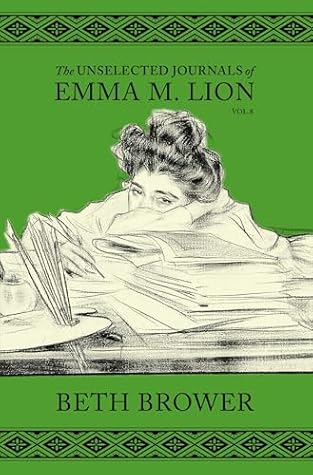More on this book
Community
Kindle Notes & Highlights
by
Beth Brower
Read between
July 19 - August 14, 2025
Forgive yourself for having let yourself down, even while you were holding others up.
wait on the shore of the mystery to see what the tide will bring.” And so we two sat in a companionable silence, listening to the sound of the tide move around our feet as we both waited on the shore of our respective mysteries.
A guffaw from our resident duke. Then, “You were saying about your mother?” “Today is her birthday.” The edge of Islington’s eyes pulled tight. Grief understands grief. “May is a pleasant month for a birthday.”
I considered all the lines that make up the weaving of my mother’s memory. Her loss feels particularly unjust, for at thirteen there is only so much a child can understand about her mother. There were conversations that couldn’t have been had, and if they had been attempted, would not have been understood.
Forever grieving the loss of my mom, just a year ago, this section of the book was cathartic. I cried, grieved, and shifted to gratitude for the time we had and conversations shared.
I had found my way into Hawkes’s room. Or rather, upon looking about, I’d found myself inside a pocket of Hawkes’s soul. The late afternoon light splashed gold over everything, and it took a moment for my eyes to adjust, but when they did, I lifted my right hand—the hand that held the key—and placed it over my heart. I have loved the spaces of my friends—Islington’s library, Pierce’s studio, Saffronia’s Thrush’s Victory, Mary’s haphazard room filled with papers and strewn bits of clothing, and even the atelier of The Hound—but this room, this very small room, made me feel something I’d not
...more
Strange as it may seem, it was almost like meeting a person for the first time.
“He was never ours to begin with. Some things have to be let go. They weren’t made to stay.”
To quote my father, “Bother and damnation!”
A smile, the rare appearance of Hawkes’s dimple, the passing of his fingers through his unruly hair. He topped it off with a nod and reclosed his eyes.
I’ve never considered the cello as companion for dawn. One would think to pair it with falling evening, with deepest night. But the instrument did seem to understand the dream state just before waking.
“Lion,” Islington interrupted, “when was the last time you felt absolute and sustained freedom?” Hawkes glanced up from the pages of his book to watch the exchange. “Well,” I thought, “in my garret—” “Sustained,” Islington clarified, “meaning days and days of the stuff.”
“A visit to Stonecrop should begin with liberal access to the gardens, the fields, the woods,” Islington said. “All things that love the sun are out of doors.” “Tennyson?” I asked. “Wordsworth,” Hawkes gave answer, turning the page of his book. Then, looking up into a distance the rest of us could not see,
All things that love the sun are out of doors; The sky rejoices in the morning's birth; The grass is bright with rain-drops;—on the moors The hare is running races in her mirth; And with her feet she from the plashy earth Raises a mist, that, glittering in the sun, Runs with her all the way, wherever she doth run.
A Note on Stonecrop Islington How do I describe? Islington looks taller in the country, and oh so very capable of a landed, pastoral existence. As if one could place a wineglass, or a cricket bat, or a walking stick in his hand, and they would all fit in equal measure.
Every morning should begin with a cello.
There are sounds through the undergrowth, the flit of bird from branch to branch, the false rainfall sound of a summer breeze rustling the leaves far above. This is a place that knows every old thing.
“How did you know it was I sitting here?” I asked after a minute had passed. “Because,” he took in a breath, his hand rising with his chest, “you slip through time.” He was soon again asleep. And I was left thinking that was perhaps the loveliest spell I’d ever heard.
“I’ve invited very few here in the last ten years. I needed to reclaim that which it had once given me.” “Which was?” “Solitude of the deepest kind,” Islington shrugged. “Independence of soul not simply of choice, a natural line of beauty, serendipity.”
What an afternoon! We did not traverse much ground physically. Most of the afternoon was spent at the river bend, each lost in the pages of our books. Once in a while a pebble of words would be thrown into the stillness. Hawkes quoting this or I reading that. We would let the words ripple, and then return to our own pages.
But one can love many places and still miss home.
Night silence in the country is louder than one remembers. An owl’s call, insects, the sound of leaves rustling.


